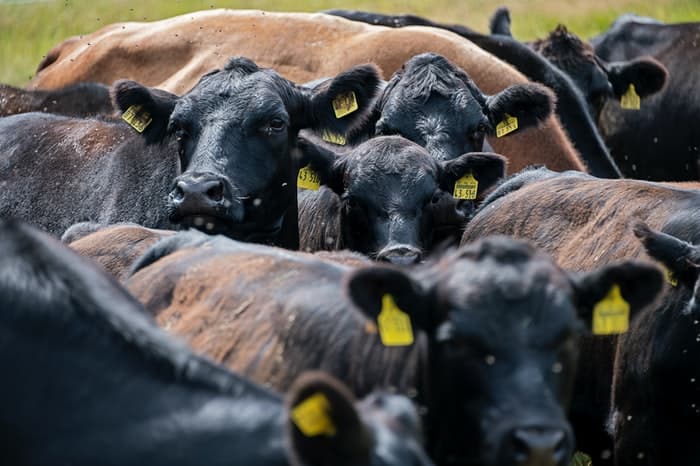Some people believe that if you are vegan, you cannot wear leather because it is an animal by-product. Others believe that as long as the leather was not sourced in an unethical way, there is no harm in wearing it.

Many vegans choose to not wear leather because of the ethical implications. Leather production often involves cruel practices, such as skinning animals while they are still alive. There are also environmental concerns associated with leather production, such as the use of harmful chemicals and the pollution caused by tanneries.
The Beliefs Behind Veganism
When people think of veganism, the first thing that comes to mind is usually diet. But for many people, veganism is about far more than what they put in their mouths. Veganism is a lifestyle that seeks to exclude all forms of animal exploitation and cruelty, whether it be in the food we eat, the clothes we wear, or the products we use.
The beliefs that underpin veganism are based on the idea that all animals have a right to life and freedom. Vegans believe that it is morally wrong to exploit and kill animals for any purpose, including food, clothing, or entertainment. They also argue that consuming animal products contributes to global warming and other environmental crises.
The Environmental Impact of Leather
Leather tanning is a process that uses toxic chemicals to preserve animal skins. These chemicals can be harmful to the environment and human health. The most common chemical used in tanning is chromium, which can cause skin cancer and respiratory problems. Other chemicals used in the process include formaldehyde, arsenic, and lead.
The production of leather also requires a lot of energy and water. It takes about 2,000 gallons of water to produce one pound of leather, and the energy needed to produce a pound of leather is equivalent to driving a car for 40 miles.
Leather is not a sustainable material, and it’s important to consider the environmental impacts of its production before buying products made from it. There are many environmentally friendly alternatives to leather, such as vegan-friendly materials like microfiber or cork.
Animal Rights
There are many reasons why people choose to become vegan, but one of the most common reasons is the belief that animals should not be killed or exploited for human use. This belief extends to all animals, from those used for food, clothing, experimentation and entertainment. Some vegans also extend their compassion to animals by refusing to wear animal products such as wool, leather and silk.

One of the most important aspects of veganism is that it’s a lifestyle choice rather than just a diet. Vegans typically don’t just avoid meat and dairy products, but they also try to avoid using any animal by-products in their everyday lives. For example, some vegans will refuse to use cosmetics or toiletries that have been tested on animals.
Alternatives to Leather
Leather is a common material used in products such as shoes, bags, and belts. However, there are a number of alternatives to leather available, such as cotton, hemp, and synthetic materials.
Cotton
Cotton has long been a popular choice for clothing, and it’s now becoming a more popular choice for shoes, bags and other accessories. Cotton is an environmentally friendly alternative to leather, and it’s also vegan-friendly. Cotton is breathable and can be machine-washed, making it a practical choice for everyday use.
Vegan Leather
There are a number of reasons to choose vegan leather over traditional leather. The biggest reason is that vegan leather does not involve the killing of animals. Animals are often subjected to inhumane conditions on traditional leather farms, and many are killed for their skin.
Vegan leather is also a more sustainable option than traditional leather. Leather production requires large amounts of water and energy, while vegan leather can be made with sustainable materials like bamboo or cork.
Finally, vegan leather looks just as good as traditional leather and comes in a variety of colors and styles. It’s the perfect way to show your support for animal rights without sacrificing style.
Cork
Cork is a sustainable alternative that’s becoming more popular among vegans and environmentalists. Cork is made from the bark of cork oak trees, which are found in Mediterranean countries like Spain and Portugal.
The bark is harvested every nine years, and the trees are never killed. Cork is a natural insulation material, so it’s perfect for shoes and jackets. It’s also water-resistant and durable.
There are several companies that make cork products, including Shoes with Soul, Matt & Nat, and Corkor. These companies use sustainable practices to harvest the cork and manufacture their products.
Recycled Rubber
There are many reasons to choose recycled rubber as an alternative to leather. For one, recycled rubber is vegan-friendly. It does not involve the use of any animal products in its production.
Additionally, recycled rubber is a more sustainable choice. It can be made from materials that would otherwise end up in landfills, and it requires significantly less energy to produce than leather does.
Recycled rubber also has a longer lifespan than leather, meaning that it will last longer and need to be replaced less often.
MuSkin
MuSkin is an environmentally friendly and sustainable material made from mushrooms. It is a natural alternative to leather, and it has many of the same properties. MuSkin is breathable, durable, water-resistant, and biodegradable. It is also a renewable resource, because mushrooms can be grown quickly and easily.
Conclusion
In conclusion, veganism is about living compassionately and ethically, which includes not wearing leather. There are many vegan-friendly materials available that look just as good as leather, so there is no need to harm animals for fashion. If you are considering going vegan, consider the impact your clothing choices have on animals, and make the switch to vegan-leather products.








